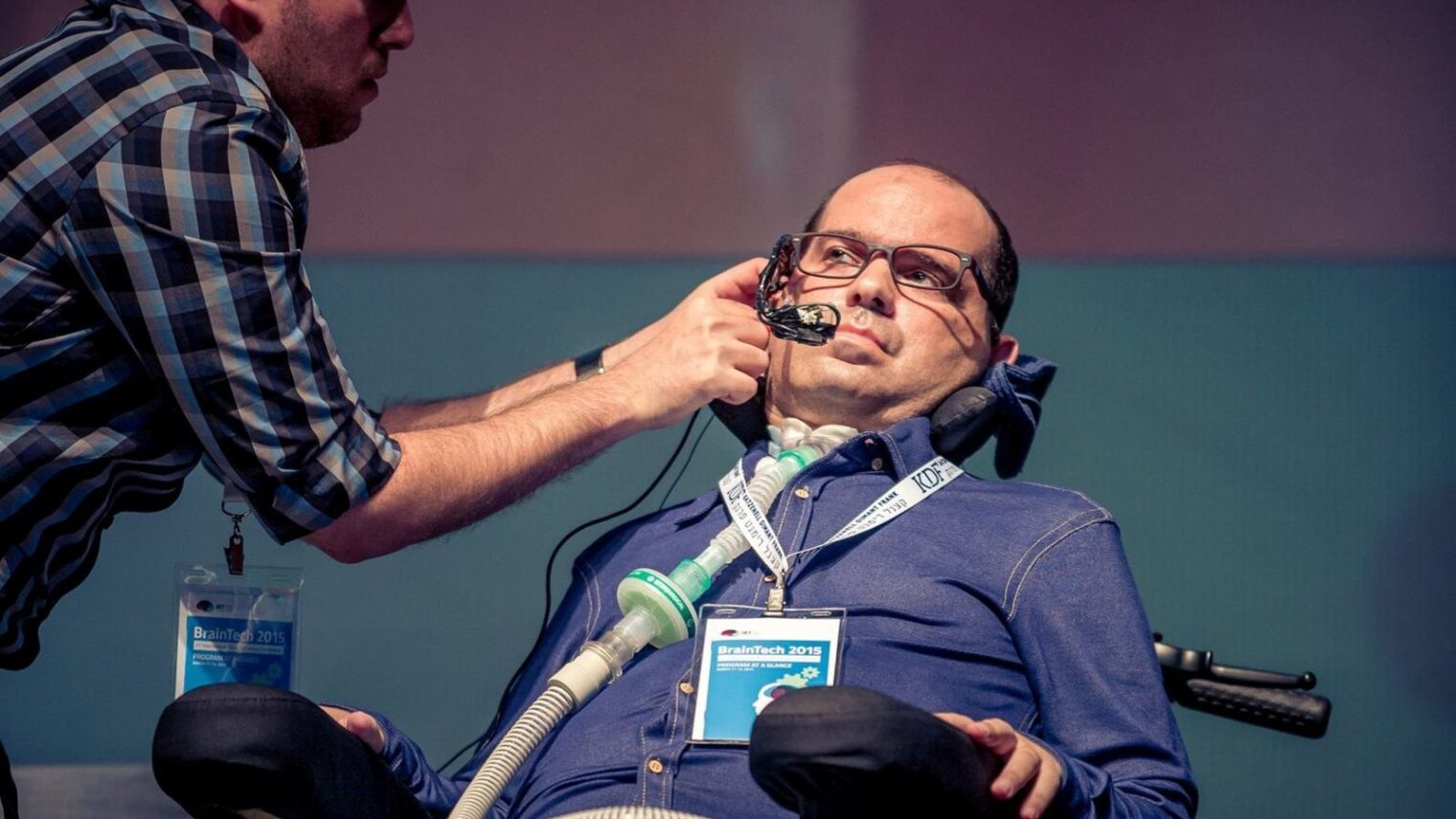Crowdfunding sites show off creativity in technology and the arts. They call on people to help back an environmental issue or just a fun one.
And then there are the crowdfunding campaigns that want to change the world. EyeControl is one of those.
The people behind EyeControl are Israeli entrepreneurs on a mission to give a voice to “locked-in syndrome” patients – people who are aware of what’s happening around them but cannot communicate verbally due to paralysis.
The EyeControl team — together with the nonprofit Prize4Life – recently turned to crowdfunding to raise $30,000 to get a pilot program for ALS patients off the ground for its cheap, accessible and screen-free mobile communication device. In its first 15 days on the indiegogo campaign site, the social technology startup topped $35,000. Now they’ve launched a stretch goal of $50,000 and promise to donate 10 EyeControl sets for patients in developing countries if they succeed.
“ALS patients and their families tell us that they’ve been waiting for such a device to be affordable and accessible,” CTO and co-founder Itai Kornberg tells ISRAEL21c. “Even with all the technology available today there is no device that lets ALS patients tell their families how they’re feeling after a treatment. Everyone who hears about our idea has given us great feedback.”
Of course, the ALS population is just a slice of those afflicted by locked-in syndrome. “Ghost Boy” Martin Pistorius found himself locked-in after a mysterious virus. Others with the affliction include victims of snakebite, stroke, multiple sclerosis and muscular dystrophy.
“Everyone who can’t move and can’t talk can use EyeControl,” says Kornberg.
Today, there are existing communication technologies that help people with locked-in syndrome “speak” to the outside world. However, they’re expensive, cumbersome to calibrate, and not mobile.
The EyeControl team says its device– computerized glasses that work with a mobile app — is 95 percent cheaper than all other devices already on the market.
Here’s how it works: An infrared camera connected to the frame of the glasses identifies the direction in which the eye is looking. The camera communicates with a micro-computer called Odroid via USB. The Odroid translates the user’s eye direction into commands. And the commands can be communicated via headphones, speaker or smartphone.
The system has predefined sentences like, “I need to go to the bathroom,” “my hand hurts” or “I’m hot” — and alert sounds that the user can choose from.
“We have a working prototype but we need to improve the algorithms and eye-detection technologies before we start our pilot. We already have 20 or so people signed up for the pilot,” says Kornberg, explaining how the crowdfunding money will be used.
For the Israelis behind this project, it’s a personal mission.
Kornberg first came upon a similar idea at a hackathon in 2014. He tried to help ALS patient Asher Shemesh (who has since succumbed to the deadly disease) figure out a way to control his computer through the use of his eyes. Today, you can find Kornberg on the tech circuit with Prize4Life CEO Shay Rishoni, an ALS patient himself, showing what EyeControl can do and trying to raise awareness and funds for the product.
Meanwhile, Or Retzkin and Tal Kellner, today CEO and head of product for the startup, respectively, both had grandparents with ALS, heard about Kornberg’s mission and asked to join the team.
Obviously, $30,000 in crowdfunded money isn’t enough to change the world. But, says Kornberg, “We are waiting for approval of more funding from the Israeli Chief Scientist’s Office and with that money and the crowdfunding campaign we will be able to achieve our next R&D plans. We have a long-term business plan.”
The company, which is running the crowdfunding campaign in affiliation with the Schusterman Alumni Network, wants to see its product used “in every locked-in patient house, worldwide,” in the next three years.
For more information, click here.















